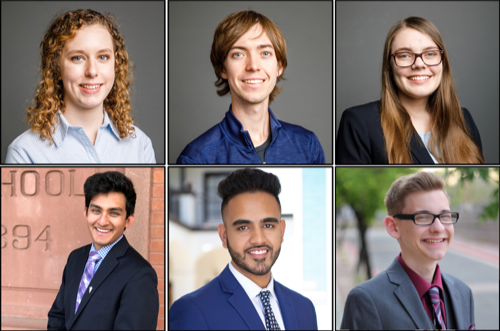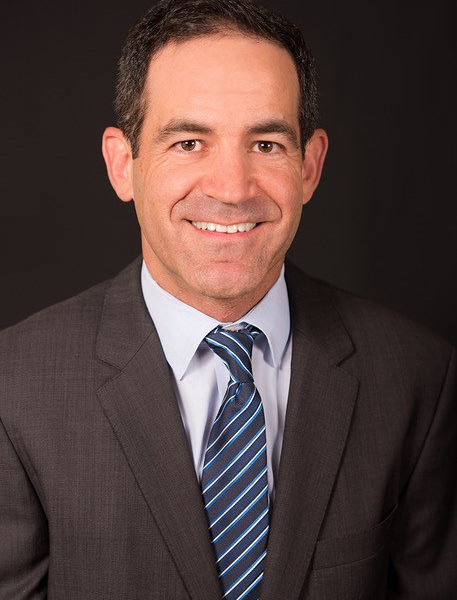Each year, about 20 high-achieving Arizona high-school seniors are selected for the Flinn Scholarship, an award valued at more than $120,000 that covers tuition, fees, housing, and meals at ASU, Northern Arizona University, and the University of Arizona.
Flinn Scholars are playing lead roles in the Luminosity Lab at Arizona State University by designing, building, and deploying novel solutions to address some of the world’s most pressing challenges.
Four of the lab’s Scholars – Nikhil Dave, Katie Pascavis, John Patterson, and Nathaniel Ross – joined the leadership from the student-driven research and development lab for a CivEx discussion sponsored by the Arizona Center for Civic Leadership at the Flinn Foundation. The recording and presentation are available for viewing.
The Luminosity Lab has responded to the COVID-19 pandemic with an innovative mask design and the creation of a personal protective equipment network and sterilization systems. Separately, the lab has reached finalist status in a NASA competition, formed partnerships with a historically black college and university and health workers in Ghana, and retrofitted a Camaro into a fully autonomous vehicle for research.
The projects developed by the Luminosity Lab have made impacts both locally and across the country and world.
The projects include:
- Created the FloeMask, a comfortable and breathable mask with medical-grade filtration that is one of five finalists in theX-Prize Next Gen Mask Challenge;
- Built a PPE Response Network in less than three weeks, producing and delivering more than 10,000 pieces of PPE;
- Designed, developed and received provisional patents on two novel COVID-19 sterilization systems;
- Selected by NASA as one of eight teams to develop a system to explore the moon’s darkest regions;
- Re-engineered the Guardian Drone with lights and alarms to improve student security by responding to calls from ASU campus emergency call boxes and assisting until police officers arrive;
- Converted a Chevrolet Camaro to a fully autonomous vehicle dubbed Trident One in less than six months for use by ASU for autonomous vehicle data collection, research, and development;
- Engaged Girls Scouts in STEM subjects by developing a robotics platform;
- Helped build and launch a mobile game, Shipshape, that teaches supply-chain concepts to health workers in Ghana; and
- Provided design and architectural support for a commercial development project at Lane College, a historically black college in Jackson, Tennessee.
The student lab includes engineers and data and computer scientists, but also students studying design, business, law, and public policy. In addition to Dave, Pascavis, Patterson, and Ross, Flinn Scholars Griffin Fletcher, Troy Gilchrist, and Shivam Sadachar have participated in the lab. Five Flinn Scholar alumni have also been engaged in the lab, including Scott Fitsimones, Lily Luo, Sami Mian, Tina Peng, and Mary Saxon.
After initially working in near secret on ASU’s campus, without a website or even formal lab space, in the last two years the Luminosity Lab has built out its public profile.
“I think there’s a huge opportunity for us as we start to scale this brand and concept to other institutions. The idea would be to build this massive network of talent across the country and really engage people in college and engage them in a meaningful way,” said Mark Naufel, the lab’s executive director.
With related strategic aims, ASU recently proposed a targeted appropriation from the Arizona Legislature that would include creation of five science and technology centers connecting students, faculty and private industry through training programs and applied-research labs.






